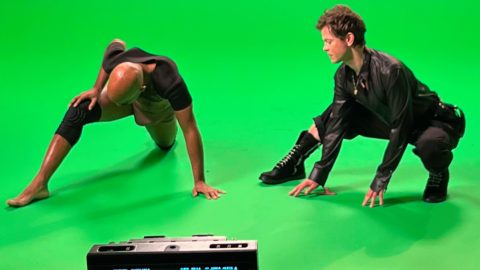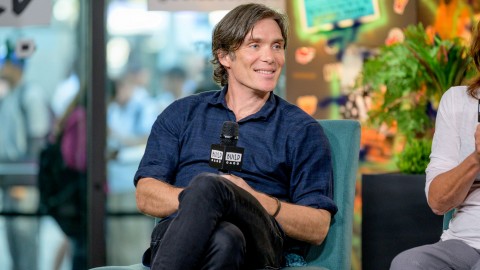
There were a fair few surprises at this year’s Academy Award nomination show (not least hearing Priyanka Chopra read out the full title of Borat 2, twice, and seeing Nick Jonas dressed as an Oscar), but the one film that everybody already knew was going to make the cut was Nomadland.
Mank leads the way with 10 nominations, and The Father, Sound Of Metal and The Trial Of The Chicago 7 all scored highly, but Nomadland’s six nods for Best Picture, Best Director, Best Actress, Best Adapted Screenplay, Best Cinematography and Best Editing feel like some of the safest bets of the whole award’s season. In fact, if Ludovico Einaudi hadn’t cribbed the score from his own albums, and if the Academy hadn’t weirdly filled up the Best Supporting Actor category with the two leads from Judas and the Black Messiah, Chloé Zhao’s film might have even beat Mank’s total.

The story of a woman (two-time Oscar winner Frances McDormand) who spends her life roaming the American West in a van after she loses her factory job, Nomadland is a beautifully told poem about the fringes of American society – and another great showcase for McDormand in a frayed, fearless character study that instantly feels iconic. It’s a slow, slight film that moves at its own pace and deliberately dwells on the details. It’s a long way from the grandstanding epics and melodramas that always used to clean up at the Oscars. Already winning the top gongs at Venice, Toronto, the Golden Globes, the Critic’s Choice and the Independent Spirit Awards, Nomadland seems like the kind of indie film that would have been ignored in the old days when big swoony blockbusters like Titanic cleaned up, or even more recently when bland heartstring-tuggers like Green Book won Best Picture. So what’s changed?
America, for a start. Always at least a few years behind the times, mainstream Hollywood is only now catching up with the social movements that have defined the last decade in American politics – with Nomadland’s rust belt refugees feeling even more prescient now than they do in the film’s setting (right after the 2009 financial crash). Always preferring to look back from a distance, Hollywood’s response to America’s great divide doesn’t come across as urgent, but it does feel real – making Nomadland the first genuinely great piece of post-Trump political cinema (something the voters will be keen to look impressed by).

Just as important as what the film is about is who made it. Director Chloé Zhao has been flying low under the indie radar for a few years, making her debut with 2015 drama Songs My Brothers Taught Me (finally getting a UK release on MUBI from April 9) and getting great notice at Cannes for her second film, The Rider. Now one of only five female directors in history to get an Oscar nomination, Zhao is also one of the only Chinese filmmakers to ever get recognition. The Oscars still have a very, very long way to go with diversity representation (where, for example, were this year’s Black directors?) but Zhao’s nomination is a small step in the right direction – and one that the voters will hopefully want to recognise.
But what about the competition? The Father has seen Anthony Hopkins become the oldest actor to get a (well-deserved) Oscar nomination, but it’s too small and too stagey to get the top gong. Judas and the Black Messiah seems to have fallen through some odd cracks in the system – with no director nod for Shaka King, and no lead actor nod for anyone – meaning voters are likely to pass it by. Promising Young Woman seems to have split critics, so it’s just as likely to split voters; Sound Of Metal is a sure-fire win in the acting category for a career-best Riz Ahmed (and in the technical Sound categories, for drawing attention to itself), but probably not in Best Film. The Trial Of The Chicago 7 feels like a throwback to the kind of film that would have won 10 years ago, and Minari, beautiful as it is, is dwarfed by the dusty vistas of Nomadland.

The only other contender here is David Fincher’s Mank – a film that sounds like a winner on paper. A Hollywood film about Hollywood, shot in black and white and filled with A-listers, it’s an elegant, highly polished slice of autobiography about the people who make movies. On the other hand, it came out ages ago (the Academy has a short memory), was released on Netflix (the Academy historically hates streamers), and behind the sheen of golden-age nostalgia lies a sharp, ugly, anti-Hollywood horror story that threatens to undermine the whole myth of tinseltown.
Without the likes of postponed favourites In The Heights, Dune and West Side Story to celebrate, the Academy Awards is left with a late-running, awkwardly-pitched Oscar show that has a lot to prove this year. As an industry, Hollywood has never faced a bigger existential threat than COVID – and this year’s Best Picture choice is more important than ever. With cinemas in crisis, whatever makes the headlines on April 26 will be an opportunity to signal some kind of return, heaping awards on a film that a lot of people watching very well might not have even had the chance to see.
Caught somewhere between gazing longingly at the past and squaring up to the future, Nomadland feels like the only film that stands a chance of saying all the right things.
The post ‘Nomadland’ is the film to beat at this year’s Oscars appeared first on NME.








